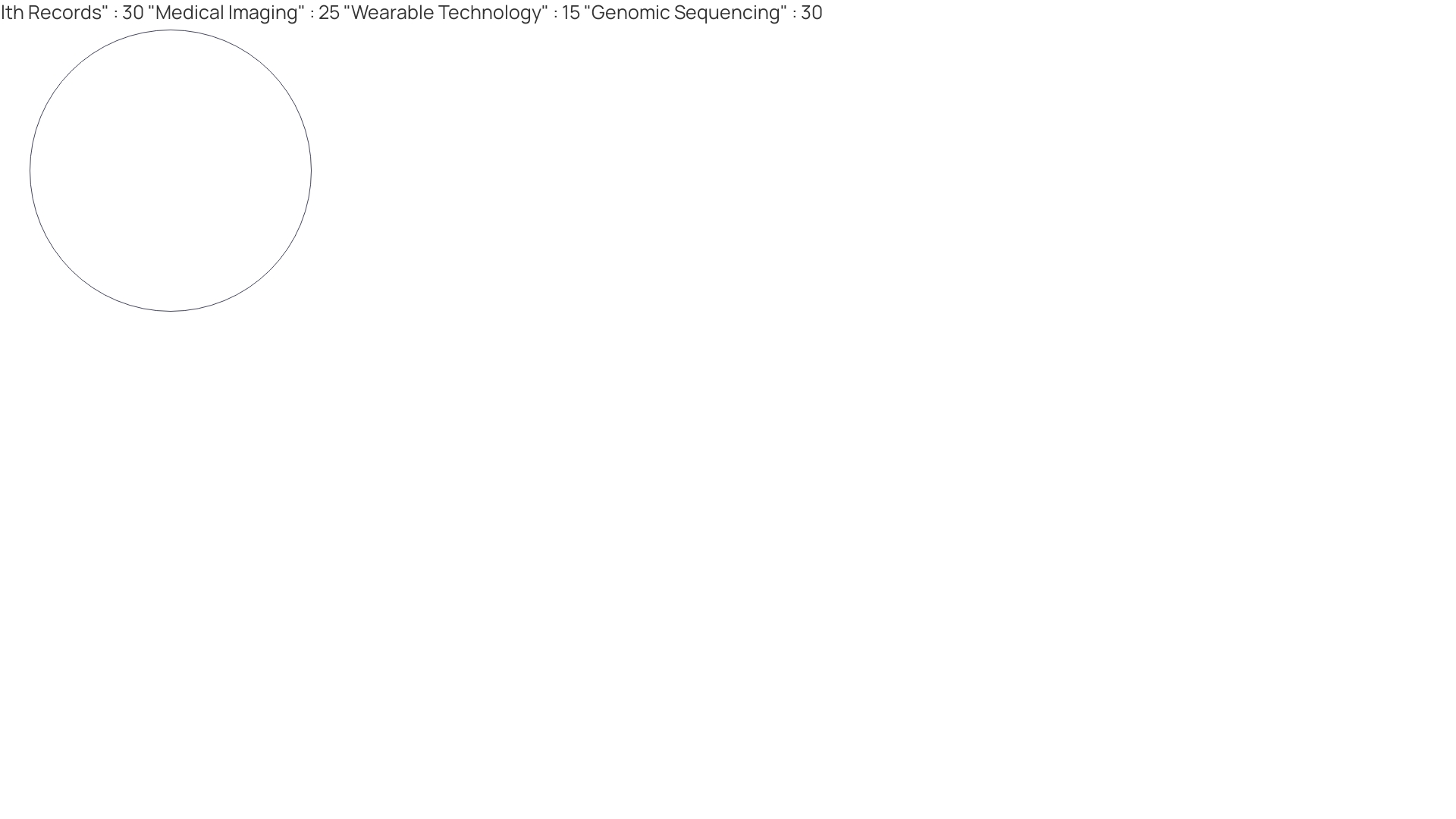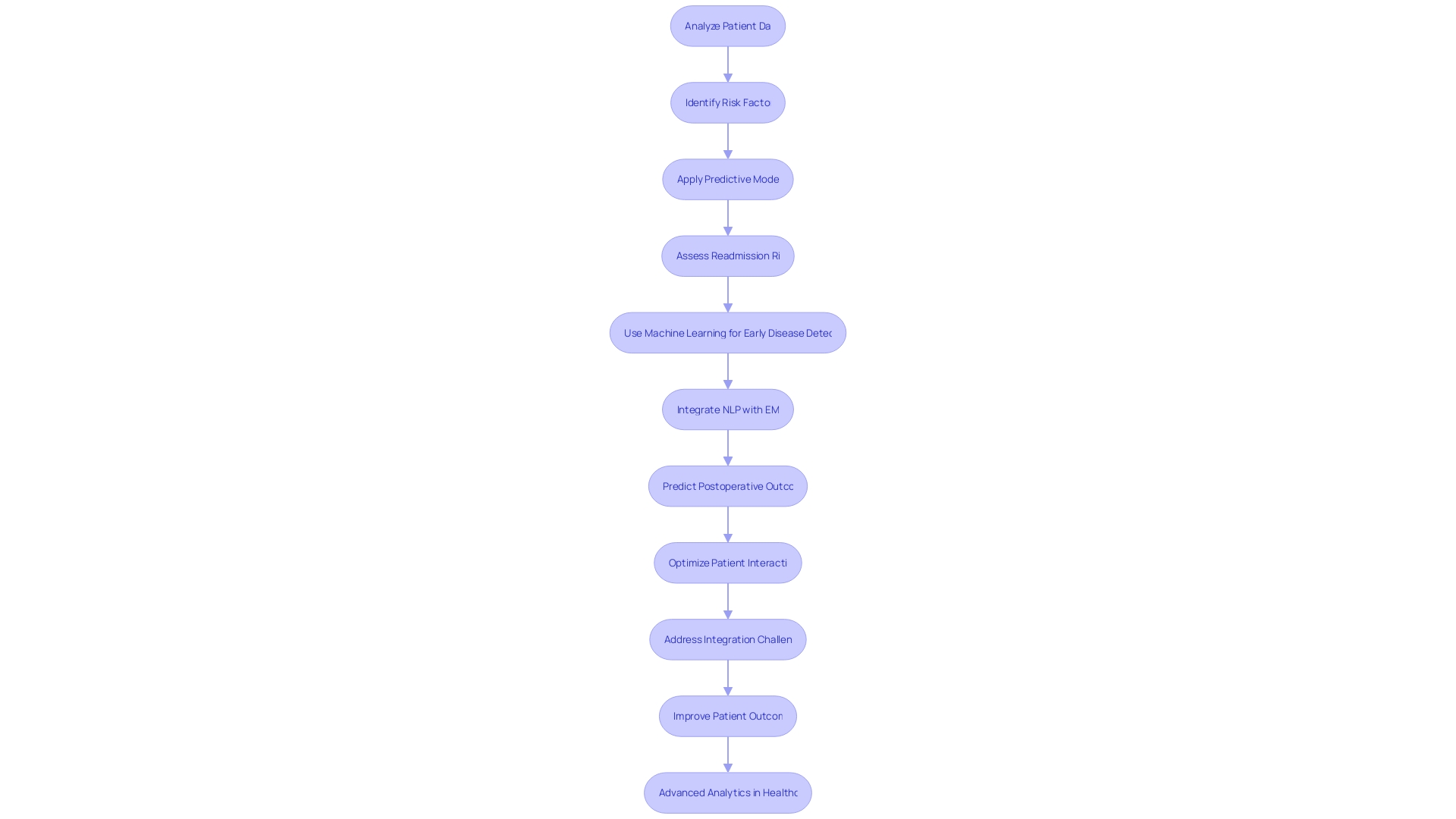Introduction
The Role of Big Data in Healthcare
The healthcare industry is undergoing a transformative revolution, fueled by the power of big data. In this article, we will explore how big data is being used to enhance patient outcomes, optimize operations, and advance medical research. From the integration of diverse data sources to the challenges of data quality and standardization, we will delve into the potential of big data analytics to revolutionize healthcare.
Join us as we uncover real-world examples of healthcare analytics and discuss the impact of AI on healthcare decision-making. Finally, we will look to the future and examine how healthcare analytics will continue to shape the ever-evolving landscape of healthcare. Get ready to discover how big data is reshaping the future of healthcare.
The Role of Big Data in Healthcare
The healthcare industry is at the forefront of a data revolution, harnessing the power of big data to enhance patient outcomes, optimize operations, and advance medical research. The integration of data from diverse sources such as electronic health records, medical imaging, wearable technology, and genomic sequencing has been instrumental in painting a more comprehensive picture of patient health and treatment efficacy.
As Cora Han, J.D., Chief Health Data Officer at UC Health, suggests, the potential of data to transform healthcare is immense, with academic health centers like UC Health leading the charge in data-driven innovation. Despite the abundance of data, a staggering 97% remains untapped, highlighting the need for tools that can effectively interpret and utilize this information for the benefit of patients and clinicians alike.
The challenge lies not only in the collection but also in ensuring data quality and standardization. Data sets must be complete and standardized across various origins to be truly valuable.
The healthcare sector is now seeing an annual data growth of 36%, indicating the urgency for establishing robust data governance and privacy measures. Moreover, with patient consent, data can be used for research, while maintaining privacy through methods like anonymization or federated access. Ultimately, the effective use of big data analytics represents a paradigm shift in healthcare, promising to accelerate the development of new medical technologies, enhance patient care, and establish more efficient healthcare systems. The integration of advanced analytics into healthcare is more than a trend; it's a pathway to a future where every piece of data contributes to a more profound understanding of health and well-being.

Challenges and Benefits of Using Big Data Analytics
The healthcare industry is at the forefront of a data revolution, with an estimated 30% of the world's data volume originating from this sector. This figure is projected to climb to 36% by 2025, indicating not only the sheer volume but also the increasing velocity and variety of healthcare data. These trends underscore the need for robust data management systems to harness the potential of big data analytics effectively.
However, the sector faces challenges such as data quality, completeness, and standardization—critical factors for reliable analytics. IT investment in healthcare lags behind other industries, making it difficult for organizations to keep up with data management demands, and over 40% of these organizations report a shortage of skilled data personnel. Despite these hurdles, the integration of big data analytics into healthcare has led to remarkable advancements, including the personalization of medicine, enhanced clinical decision-making, and the optimization of resources.
For instance, a study published in Nature revealed that Google's AI model, Med-Palm, aligned with medical consensus with a 92.6% accuracy rate. Such advancements in AI and big data analytics offer significant opportunities for healthcare providers to improve patient treatments and outcomes, streamline operations, and foster innovation in medical research and technology. The healthcare industry's trajectory is set towards transformative change, with data analytics playing a pivotal role in shaping future healthcare landscapes.
Real-World Examples of Healthcare Analytics
In the realm of healthcare, the implementation of advanced analytics has been a game-changer, particularly when it comes to enhancing patient outcomes and streamlining costs. For instance, predictive analytics has been instrumental in identifying patients at an increased risk of hospital readmission. By meticulously analyzing comprehensive patient data, including demographics, medical records, and socio-economic factors, healthcare professionals can preemptively address issues, ultimately reducing readmission rates.
Recent studies have shown that predictive models, when applied closer to the patient discharge date, yield higher accuracy. This underscores the potential of timely, data-driven interventions in improving patient care. Moreover, machine learning algorithms are revolutionizing the early detection of diseases by pinpointing anomalies in medical imaging, such as those indicating the presence of cancer.
This not only aids in early diagnosis but also significantly improves the chances of successful treatment. The integration of natural language processing (NLP) with electronic medical records has further enabled the extraction of nuanced data, enhancing the prediction of postoperative outcomes and readmission risks. These technological advancements have paved the way for a more proactive approach in healthcare, where every patient interaction is optimized for better health outcomes.
As healthcare systems continue to evolve, the focus on coordination, patient experience, and quality outcomes remains paramount. The use of analytics in healthcare is not without its challenges, however. The sector grapples with issues like disparate systems and data silos, which can impede the seamless exchange of information.
Yet, the push for actionable insights from data is relentless, as evidenced by healthcare systems' efforts to refine billing processes and improve their competitive edge. The journey towards integrating analytics into healthcare workflows is complex, but the benefits are undeniable. As we move forward, it is crucial for healthcare organizations to navigate the adoption challenges and harness the full potential of analytics to deliver superior patient care.

The Impact of AI on Healthcare Decision-Making
Leveraging AI in healthcare is at the frontier of medical advancement. By adopting Markov Decision Process models, we can optimize patient outcomes through sequential decision-making, focusing on immediate health conditions without being swayed by future uncertainties.
Such models have shown promise in managing ICU occupancy efficiently, balancing individual patient care with overall healthcare system sustainability. In practical terms, simple threshold policies, based on key health metrics, are being developed for their ease of implementation and clear interpretability.
These guidelines assist clinicians in determining when a patient transfer to an ICU is beneficial not only for the individual but also in maintaining the system's capacity to deliver optimal care for all. Recent reports, however, raise alarms about Ai's ethical use in healthcare.
For instance, allegations against UnitedHealthcare suggest a misuse of AI algorithms could override medical expertise, denying patients necessary care. The WHO cautions that without inclusive training data, AI could exacerbate global health disparities.
To navigate these challenges, AI systems must be governed by transparency and accountability. This is essential to respect patient autonomy and ensure equitable healthcare delivery. As we venture into an era of personalized medicine and telehealth, it's clear that AI will play a pivotal role in shaping healthcare practices. However, the full potential of AI in healthcare hinges on the standardization and accessibility of health data, as well as vigilance in monitoring AI performance across diverse populations. The Future of Health and the Duke-Margolis Institute for Health Policy underscore this imperative, having engaged international health leaders in a consensus-building exercise. The consensus is clear: AI in healthcare must be carefully managed to improve patient outcomes and operational efficiencies while safeguarding ethical principles and equity.
The Future of Healthcare Analytics
Harnessing the power of healthcare analytics is becoming increasingly vital as we navigate a world rich with data. Organizations are already experiencing remarkable gains; for instance, Acuitas Health saved around 64 hours of staff time per week for one practice, reducing waste by 70%.
Such efficiencies translate directly into improved patient care. Community Health Network's analytics-driven initiatives have had profound impacts, saving over 400 lives, affecting 400,000 individuals, and achieving cost savings in the realm of $35-40 million.
The integration of diverse data sources is crucial. For example, during the initial COVID-19 shutdown, one provider rapidly adapted to changes, outpacing competitors by swiftly reallocating resources.
This agility is underpinned by advanced analytics platforms, like those used by Queen’s to streamline patient flow, demonstrating the transformative potential of data in healthcare operations. Looking ahead, telehealth and remote monitoring are set to evolve, offering more robust care options.
The remote patient monitoring segment alone is poised to dominate the wearable medical devices market due to the aging population and the prevalence of chronic diseases. In the UK, 7.6 million people live with heart and circulatory diseases, highlighting the need for effective monitoring solutions. Moreover, North America leads the market, with the US as a primary revenue contributor, propelled by the rising incidence of chronic and heart diseases, and increased health awareness post-pandemic. Strategic planning for healthcare executives must be visionary yet flexible, embracing emerging technologies and evolving patient needs, while prioritizing cybersecurity and data privacy. The empowerment of patients is a cornerstone of this evolution, with leadership roles pivoting to accommodate these technological and cultural shifts. Notably, OpenNotes Lab's initiative to use AI in enhancing patient-care team trust exemplifies the progressive steps being taken to bridge communication gaps and improve health outcomes.
Conclusion
In conclusion, big data analytics is revolutionizing healthcare by enhancing patient outcomes, optimizing operations, and advancing medical research. Despite challenges in data quality and standardization, the benefits are significant.
Big data analytics enables personalized medicine, enhances clinical decision-making, and optimizes resources. Real-world examples demonstrate its effectiveness in reducing readmission rates and aiding in early disease detection.
The impact of AI on healthcare decision-making is profound but must be governed by transparency and accountability. Looking ahead, healthcare analytics will continue to play a vital role in delivering superior patient care.
Strategic planning that embraces emerging technologies while prioritizing cybersecurity and patient empowerment is crucial. Big data analytics has the power to reshape the future of healthcare by revolutionizing care delivery, innovation, and operational efficiencies. In summary, big data analytics has the potential to transform healthcare through actionable insights for improved patient outcomes. Overcoming challenges in data quality and standardization is essential. Healthcare organizations must fully harness the potential of analytics to deliver superior care while navigating the evolving landscape of healthcare.





